Science, Technology and International Relations
The STIR Programme is the newest programme within the School of Conflict and Security Studies at the Institute. The Programme aims to look at international relations from an S&T perspective and vice-versa. The programme also attempts to develop area studies at the global level.
It has a special focus on Science Diplomacy. With an objective to focus on “Science for Diplomacy” and “Diplomacy for Science”, the Programme aims to bridge between the two. The immediate focus of the Programme under Science Diplomacy is focused on healthcare, space, cyber, artificial intelligence, maritime, climate change, and disaster management. During 2020-21, the Programme has started a focused course, one of its kind on Science Diplomacy.
The Science Diplomacy Programme at NIAS has four major components – research, publications, policy interventions, and dialogues/networks. All four components feed into each other, making the Programme holistic, comprehensive, and multi-disciplinary. The primary focus is on the Arctic, Himalayas, Blue Economy, Outer Space, and Affordable Healthcare.
In terms of dialogues and networks, the Programme function as the Secretariat for the BRICS-Young Scientists Forum (BRICS-YSF), supported by the Department of Science and Technology, Government of India. The main goal of BRICS YSF is to provide a common platform, for young budding scientists across BRICS countries, to help them to connect and network in order to resolve common societal challenges with innovative research. The Programme is also looking towards creating similar networks on the BIMSTEC and SCO.

Research Associate

Doctoral Student

Doctoral Student

Professor

DOCTORAL STUDENT

Doctoral Student
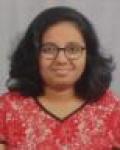
Doctoral Student

DOCTORAL STUDENT
| Global Politics: Contemporary World Affairs The Programme also looks at Global Politics as one of the important research focus. While the original objective of studying Global Politics within Science Diplomacy was to build capacity towards the latter, the former has become an independent study of inquiry. |
| Area Studies: Pakistan, China, Europe, and Maritime The Programme has a special focus on four areas – Pakistan, China, Europe, and Maritime. The Programme aims to develop expertise on the above four regions. The programme publishes an evening brief on Pakistan and China, while a daily brief on Europe. |
| Arctic Research The Programme has been working on the Arctic from an Indian perspective. One of the PhD scholars at the Institute is working on institutions dealing with Arctic governance. Another Arctic pivot is on S&T, how India could pursue its options and with whom. Third, the Programme also looks at a larger strategic/political approach to the Arctic and aims to frame policy approaches available for India. The larger objective of the Programme is to make NIAS the core of Arctic research in India. |
| Space Research Similar to the research on the Arctic, the Programme is also working on Space research from an international perspective. One of its PhD scholars is working on comparing the Space policies of countries. Emerging Space Order and India’s role remains the pivot of programme’s research on Space. |
| Science, Technology and International Relations Another important focus of the Programme is on STIR. Based on the premise that the following decades would increasingly witness “Tech War” following the “Cold War” and “Trade War” prism of international relations, the Programme looks at the interaction between S&T and IR. The current focus is on Cyber and AI. One of the PhD scholars is also working on the subject. In June 2021, it started a fortnightly – STIR. |
| Climate Change The focus of the programme on climate change is narrowly limited to the S&T aspects and related to international relations. One of the Ph.D. scholars is working on climate change in the Himalayas through a governance perspective. |
| Maritime and Disaster Management The programme wants to build its capacity in pursuing maritime and disaster management through S&T and IR prisms. Unfortunately, during 2020-21, the Programme could not pursue the area. |

|
G Parthasarathy Adjunct Faculty, Science, Technology and International Relations Programme Human Future in Digital Era CURRENT SCIENCE, Vol. 123 (12) pp 1519-1520 |

|
Rashmi B R Doctoral Student, Science, Technology and International Relations Programme Return of Geopolitics: Navigating through a New Normal in the Arctic https://lauda.ulapland.fi/bitstream/handle/10024/65270/BR_Rashmi.pdf?sequence=1&isAllowed=y Current Developments in Arctic Law, Vol. 10
|
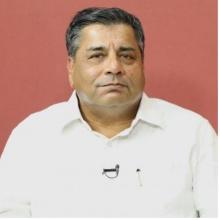
|
TCA Raghavan Adjunct Faculty, Science, Technology and International Relations Programme An Old Script: The Shadow of the Cuban Missile Crisis on Ukraine The Telegraph The conflict in Ukraine in the context of the 60th Anniversary of the Cuban Missile Crisis. |

|
Abigail Miriam Fernandez Project Associate, Science, Technology and International Relations Programme Enforced Disappearances in Pakistan: The problems of impunity and accountability https://pakistanreader.org/view_comments.php?url=Lack%20of%20accountability%20and%20impunity%20are%20two%20main%20causes%20for%20the%20continuing%20c… Pakistan Reader, 17 March 2022 Lack of accountability and impunity are two main causes for the continuing case of disappearances in Pakistan |

|
Abigail Miriam Fernandez Project Associate, Science, Technology and International Relations Programme PPP’s Long March: Three Takeaways https://pakistanreader.org/view_comments.php?url=PPP%E2%80%99s%20long%20march%20is%20aimed%20to%20showcase%20Bilawal%E2%80%99s%20political%20prowess%… Pakistan Reader, 14 March 2022 PPP’s long march is aimed to showcase Bilawal’s political prowess and prepare for the general elections |

|
Ashwin Immanuel Dhanbalan Research Assistant , Science, Technology and International Relations Programme Femicides in Europe: The case of France CWA # 686, 26 February 2022 |
| Joeana Cera Matthews Visiting Research Scholar , Science, Technology and International Relations Programme Europe and Africa: An elusive search for an equal partnership CWA # 687, 26 February 2022 |
|
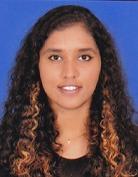
|
Padmashree A Research Assistant , Science, Technology and International Relations Programme Munich Security Report: Six takeaways CWA # 688, 26 February 2022 |

|
Harini Madhusudan Iran’s new military satellite: Does it violate the UNSC 2231? CWA#275, 28 April 2020 |
| Sourina Bej EU, minus the US, leads the global cooperation for the vaccine CWA#280, 09 May 2020 |
|

|
Rashmi B R Will COVID-19 provide a new agenda to the NAM CWA#281, 09 May 2020 |

|
P M Soundar Rajan Is there an overlap of 5G networks and COVID hotspots? CWA#284, 10 May 2020 |
| N Manoharan Is COVID-19 a Bio-weapon from China?, CWA#285, 13 May 2020 |
|
| Bao Wang How China fought the COVID-19, CWA#286, 13 May 2020 |
|
| Sourina Bej Despite the UK ban, it is not over yet for China. For three reasons CWA # 318, 8 August 2020 |
|

|
Rashmi B R FridayforFuture: The global protest against Climate change, CWA#343, 17 September 2020 |
| Sneha Tadkal Technology in contemporary global protest movements, CWA#345, 17 September 2020 |
|

|
Srikumar Pullat Space of Tomorrow: The Need for Space Security CWA # 362, 19 October 2020 |

|
Rashmi B R Climate Change Protests: Now moving out of the Covid-19 shadow CWA#366, 30 0ctober 2020 |
| Sukanya Bali Three reasons why the US wants to restrict, but China wants to promote it CWA#376, 22 November 2020 |
|

|
Harini Madhusudan Open Skies Treaty: The US should not have withdrawn, for five reasons CWA#379, 29 November 2020 |

|
Rashmi B R Will Arctic be the Next Energy Frontier? Nepal Institute for International Cooperation and Engagement (NIICE), Kathmandu, 27 November 2020 |

|
Harini Madhusudan The Vaccine Rush: Expectations vs Realities CWA#381, 06 December 2020 |

|
Rashmi B R Trump legacy leaves negligible space for any policy changes, CWA#384, 12 December 2020 |
| Sumedha Chatterjee COVID-19: How the world fought in 2020, CWA#391, 31 December 2020 |
|
| Sukanya Bali 5G, Huawei and TikTok: Four trends in 2020, CWA # 392, 31 December 2020 |
|

|
Harini Madhusudan Outer space in 2020: Mission, Privatization, and the Artemis Accords, CWA#394, 31 December 2020 |
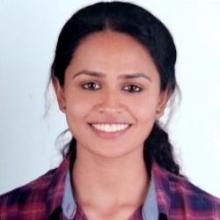
|
Abigail Miriam Fernandez Trump’s Climate Change legacy: Disruption and Denial, 428, 21 February 2021 |

|
Harini Madhusudan The Greenland election result is all about eco-geopolitics, and growing Chinese interest, CWA#459, 25 April 2021 |
| VS Ramamurthy, Dinesh K Srivastava co-authored An energy mix of renewables and nuclear is the most viable option, CWA#462, 27 April 2021 |
|

|
Rashmi B R As Russia takes over the Artic Council chair from Iceland, will it balance its regional and national interests?, CWA#468, 9 May 2021 |

|
D Suba Chandran Another Maoist ambush in Chattisgarh: Lessons from a failure. IPRI Brief # 04, 31 March 2020. |

|
D Suba Chandran The US-Taliban deal in Doha: Five reasons why Pakistan is ecstatic. Pakistan Reader # 103, 1 March 2020. |

|
D Suba Chandran The Afghans are in for a long haul: So should the rest of us. Conflict Reader #75, 1 October 2019. |

|
D Suba Chandran Azadi march in Pakistan, a damp squib. The Hindu Business Line, 7 November 2019. |

|
D Suba Chandran PEMRA’s new directive: Curbing media freedom is a self-goal and will return to haunt. Pakistan Reader #100, 1 November 2019. |

|
D Suba Chandran Why India’s foray into the arctic matters. The Hindu Business Line, (26 September 2019. |

|
D Suba Chandran Return to chaos in Afghanistan. The Hindu, 3 March 2020. |

|
D Suba Chandran Why an arctic foray is essential for India. The Hindu, 28 September 2019. |

|
D Suba Chandran Azadi march in Pakistan, a damp squib. The Hindu, 7 November 2019. |

|
D Suba Chandran NIAS Quarterly on contemporary world affairs. Vol 2, Issue 1, January-March 2020. Special focus – 2019; A global review, Strategic forecasts 2020. (NIAS P ublic Lecture No. NIAS/CSS/ISSSP/U/PL/03/2020). |

|
D Suba Chandran NIAS Quarterly on contemporary world affairs. Vol 1, Issue 1, July 2019. Special focus – The US-China trade conflict. The RBI Summit 2.0, The Trump-Kim Summit. (NIAS Public Lecture No. NIAS/CSS/ISSSP/U/PL/NQ/01/2019). |

|
D Suba Chandran India and Sri Lanka: Two countries, four vehicles. Indian Foreign Affairs Journal (Jan-Mar), 14(1). |
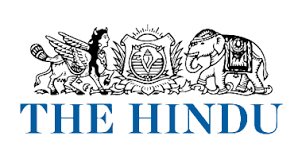
|
D Suba Chandran The Doha-Kabul journey as a road to nowhere. The Hindu, 26 september 2020 |

|
D Suba Chandran Imran complains of an Indian false flag march, Pakistan responds to the US criticisms on China and CPEC, Violence along the Pak-Afghan and Pak-Iran borders, and the locust threat. Pakistan Reader, 24 May 2020. |

|
D Suba Chandran India’s Strategic Culture Debate 2.0. Review of “The India way: Strategies for an uncertain world” by S. Jaishankar New Delhi: Harper Collins, 2020. Book Review 45, 3 March 2021. |

|
D Suba Chandran, Shailesh Nayak co-authored Arctic: Why India should pursue the north pole from a science and technology perspective? Current Science 119(6): 901-904. |
| |
D Suba Chandran Implications on Conflict Patterns and Regional Cooperation Process in South Asia. In: Implications of COVID-19 for South Asia: Civil Society Perspectives, Colombo: RCSS. |
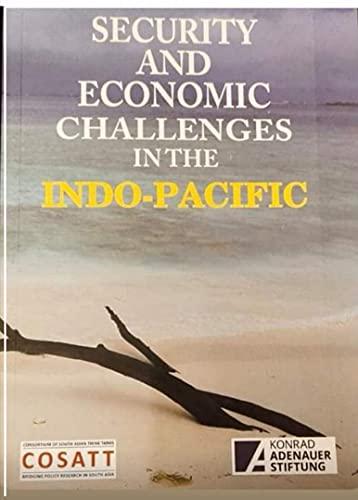
|
D Suba Chandran India and the Indo-Pacific: Ideas, strategies and challenges In: Security and Economic Challenges in the Indo-Pacific. COSATT and Political Dialogue Asia Programme, Konrad Adenauer Stiftung. Kathmandu. pp. 47-61. |
| |
D Suba Chandran Radicalisation in South Asia: Left, Right and Secular In: United by Violence, Divided by Cause?: A Comparison of Drivers of Radicalisation and Violence in Asia and Europe edited by La Toya Waha. Nomos Verlagsgesellschaft Mbh & Co. pp. 141-15. |
| |
D Suba Chandran Human security in south Asia: is the region ready? can the state deliver? essay from India In: Human Security in South Asia: Concept, Environment and Development edited by Adluri Subramanyam Raju. New Delhi: Routledge, pp. 60-68. |
| |
IPRI-KAS Workshop Conflicts in Africa Science, Technology and International Relations Programme NIAS Conference Room 15 July 2022, 1000 hrs |

|
NIAS Science Diplomacy Lectures India-France S&T Collaboration: Opportunities and Mechanisms Dr Srinivas V Kaveri, Director of Research, CNRS, France Science, Technology and International Relations Programme NIAS 05 May 2022 |
| NIAS-DST BRICS Workshop BRICS Young Scientists Conclave on Affordable Healthcare, Energy Solutions, and Cyber-Physical Systems NIAS STIR Programme September 13, 2021, to September 16, 2021 |
The Programme publishes the following:
The World This Week
An academic initiative of the NIAS Programme on Science, Technology and International Relations, is published as part of the research activities of the NIAS Global Politics course. The alert published every Sunday, aims to provide its readers with a ready reckoner of major developments during the week under three heads - what happened, what is the background, and what does it mean. The Alert also provides an opportunity for the young scholars at NIAS and its partner institutions to follow and comment on contemporary global developments.
Pakistan Reader Evening Brief
Published by the Pakistan Reader initiative within the Programme, it is an evening e-alert that aims to update the readers on contemporary developments within Pakistan daily. The PREB covers focused notes on issues of current development in Pakistan as well as briefs on political, social, economic, and security issues.
China Reader Evening Brief
A new initiative from the NIAS course on Global Politics at the Science, Technology and International Relations Programme at the National Institute of Advanced Studies (NIAS), the brief aims to cover political, economic, social, and cultural developments in China daily.
Europe Monitor Daily Brief
Published by NIAS Europe Studies aims to monitor, record, and analyze the daily developments across Europe as short briefs, focused commentaries, and critical essays. The scope of NIAS Europe Studies includes reviewing contemporary geopolitics, security, human rights, climate change, as well as science and technology issues across Europe. Internal politics, democratic dividends, and protests movements, trans-Atlantic alliances, regional integration, and the role of external factors such as China are a few niche areas of critical focus.






